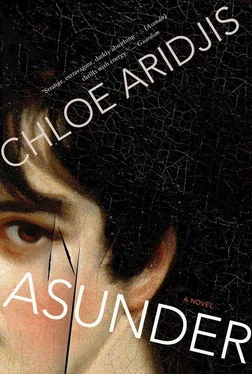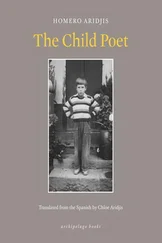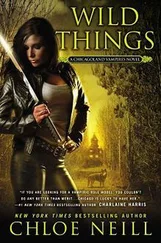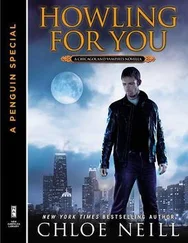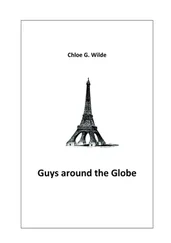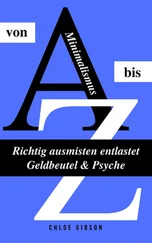The hours passed. I fetched the next round, and the next, Daniel having decided to continue his contemplation from afar. The girl was pretty, I conceded, with wide set eyes that focused on different corners of the pub, and she had an aura of the past that tends to cast a spell over nostalgic types.
Dispensing with our plans for an early night, we ordered a snack from the blackboard and settled further into the clamour of that Tuesday evening, Daniel’s attention looping in and out, and my own returning frequently to events in the Gallery that day.
A bell sounded through the pub. Last orders.
‘Go on,’ I urged him, ‘she’s just a girl with a jagged fringe and a wayward eye.’
But Daniel remained seated and when we got up to leave he shot one unreturned glance in her direction and followed me out; he knew as well as I, if not better, the danger of closing the distance even a fraction.
At night I prefer to take the bus home though it often means transferring. To descend into the brightness of the Tube cancels out the day’s end too brusquely, while buses do the opposite by carrying you through the pensive streets. I found a seat towards the back and settled in by the window, preparing myself for a quiet journey.
A masculine woman smelling strongly of roast coffee came to sit beside me. I tried to relax, the smell was quite pleasant, but the driver turned out to be extremely erratic, stepping on the accelerator at odd moments, lurching forwards along with the traffic, bolting the moment a clear strip opened up, each jerk knocking me against the passenger by my side, who didn’t react. As we zoomed past bags of rubbish awaiting dawn collection, yesterday’s debris ready to be carted off to make room for tomorrow’s, I thought about Leighton Crooke and how quickly he’d been removed from his chair at the Gallery. I’d sometimes watched him in the canteen, the museum juncture that best offered a glimpse into the lives of colleagues, not the most exciting glimpse but one nonetheless. Some individuals brought their own lunch, prepared by a spouse or themselves, the distinction apparent in the detail, others purchased hot food at the counter. Leighton Crooke always bought his food there at the counter, never anything from home as far as I could tell, and occasionally our trays would end up face to face. The widower was given to mood swings; sometimes he would talk about everything from rising bus fares to the proliferation of shopping bags in his kitchen cabinet, at others he would clunk himself down with a sullen expression and not extend more than a nod in my direction.
Like some of our more frequent visitors, a handful of individuals who’d come in regularly to look at people, not paintings, I sensed that Crooke found an escape from solitude in our museum, drawn to the airy space and soothed by its ebb and flow.
Roland too loved the ebb and flow, or so he claimed, Roland the former speed freak in search of stillness. He was proud of his new set of teeth, years of savings turned to enamel, and after speaking he’d clench his jaw to make sure nothing had come loose. His real teeth had gone years ago, first to grinding and then to rot, but now he was calm, as if the accelerator had been removed from his system. Once Daniel left the Gallery he quickly became my favourite colleague, and certainly the most handsome, with a face that looked more painted than real. As he stood between rooms, tall and creaky like an old wooden puppet, I’d scarcely notice he was in uniform.
The 38 bus deposited me steps away from where Essex Road joins Cross Street, the stop and short route home so familiar I could trace them in my sleep, though I’d be loath to miss my nightly dose of Get Stuffed, the taxidermy shop on the corner. It was always closed — visitors by appointment only — yet through the rhombus-shaped grille, which broke up the already bizarre view into kaleidoscopic fragments, I would peer in to see a pricked ear, a snout, a stripe or a raised paw, and the lifeless tails, now little more than stopped markers of time.
Whenever I looked in my gaze would land on something disquieting, whether the two mounted zebra heads or the dangling bat with outstretched wings or the mother kangaroo with the motionless baby in her pouch. At night the shop would remain lit up, the only concession the owner made between his animals and the outside world. That evening I cast a sidelong glance as I walked past, then stopped and did a double take. For a few seconds I was certain I saw Leighton Crooke’s figure there at the back, stuffed and inert and sitting upright, but when I looked again I realised it was only the imprint left by the owner, a man with raccoon-ringed eyes whom I’d often see in the morning hunched over his desk at the far end, an uninviting silhouette surrounded by his menagerie.
I ran into my flatmate as soon as I walked through the door. She had either just arrived or been waiting impatiently for my return.
‘Have you been at the moths again?’ she asked, her lips and teeth stained red with wine. Jane worked as a scout and publicist at Hunchback Records, a small independent label; her evenings were filled with gigs and record release parties and she was rarely home before one. That night she was back early.
I removed my coat and shook my hair out from under my hat.
‘One of the strips in the living room’s missing.’
‘I may have borrowed it.’
‘You’re meant to replace them.’
‘I was going to, this weekend.’
‘Well, in the meantime who knows how many moths will get at my clothes.’
‘Jane, it’s November.’
‘You know every season is moth season here.’
She was right. We had them all year round.
‘I’ll buy you a couple of new ones tomorrow.’
‘Have you taken any others?’
‘No, I only needed one for now.’
Jane’s bedroom was divided in half by two clothes racks from which her shirts and dresses hung colour-coordinated, black items at one end slowly conceding to colour, and in the middle of each rack was an adhesive white strip on which constellations of little brown moths had met their fate. At least once a day she would check these strips, counting to see whether there were any additions, moths angled skywards, tiny papery aeroplanes grounded at takeoff, their antennae raised, bodies glued flat. She had also laid out strips in the living room and kitchen; for my own reasons, I would check on them too.
I promised I would replace it the following day.
Satisfied with my answer, she turned towards her room, but before leaving asked whether I’d like to accompany her to Camden the following Sunday to buy a corset. Despite having made a point, for years, of not returning to Camden, I said yes. I’d tell her about my semi-eventful day another time.
I crossed our small living room and closed the window Jane had left open, shutting out the traffic sounds. Our flat lay on the noisy Essex Road, directly above the Sea Dragon aquarium, whose Chinese owner, purveyor of cold water, marine and tropical fish, would spend his days in the entrance of his shop with his arms crossed. As far as I could tell this was his only activity, to gaze longingly across the street at the successful fishmonger Steve Hatt, purveyor of dead and for the most part monochrome fish with splashes of pink and silver, his merchandise infinitely more in demand than the living harlequin kind. We never went to either place; the closer you live to a shop, the less likely you are to enter.
In my room I headed straight to the shelf on the wall, to the right of my bed, and stopped. From one collection to the other, that was the way, and only very occasionally did I feel like prying open a space between the two in that nebulous area called real life.
There they lay, my eighteen miniature landscapes, in their current semi-random order, their slopes and plateaus rammed into smaller dimensions, their geological memory handed to them all at once. I picked up an eggshell and tilted it towards the light, admiring the autumn landscape that would never meet winter, fiery leaves the size of rice grains forever fastened to mini branches, the painted gold sky unsilenced by any solstice or atmospheric disturbance. This autumn eggshell was the first I’d crafted, before making spring, and, months later, winter and summer, always indifferent to the real season at hand.
Читать дальше
